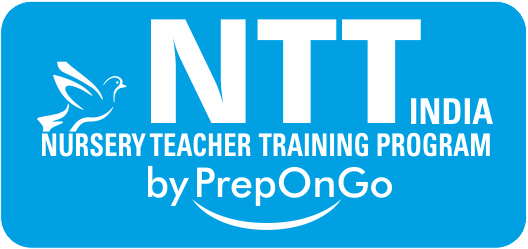Key Components of the NTT India Curriculum

At NTT India, we pride ourselves on offering a comprehensive and innovative curriculum designed to prepare nursery teachers for the vital role they play in early childhood education. The key components of the NTT India curriculum are carefully crafted to ensure that our trainees acquire the knowledge, skills, and practical experience necessary to foster a nurturing and stimulating learning environment for young children. In this article, we will explore the key components of the NTT India curriculum and how they contribute to the development of effective nursery teachers.
1. Child Development and Psychology
Understanding child development is fundamental for nursery teachers. This component of the NTT India curriculum covers the various stages of physical, cognitive, emotional, and social development in young children. Trainees learn about:
- Developmental Milestones: Key achievements at different ages.
- Theories of Child Development: Insights from experts like Piaget, Vygotsky, and Montessori.
- Observing and Assessing Development: Techniques for tracking progress and identifying needs.
2. Early Childhood Education Theories and Practices
Our curriculum emphasizes a solid grounding in early childhood education theories and practices. This includes:
- Educational Philosophies: Exploration of Montessori, Reggio Emilia, and other approaches.
- Learning through Play: Strategies to integrate play into learning.
- Curriculum Planning: Designing developmentally appropriate activities and lesson plans.
3. Classroom Management and Organization
Effective classroom management is crucial for creating a positive learning environment. This component focuses on:
- Behavior Management: Techniques for promoting positive behavior and handling challenging situations.
- Creating a Safe and Stimulating Environment: Setting up the classroom to encourage exploration and learning.
- Routine and Structure: Establishing consistent routines that help children feel secure.
4. Teaching Techniques and Strategies
Trainees learn a variety of teaching techniques and strategies to engage young learners. This includes:
- Interactive Teaching Methods: Using stories, songs, and games to make learning fun.
- Hands-On Activities: Encouraging creativity and exploration through arts, crafts, and sensory play.
- Differentiated Instruction: Adapting teaching methods to meet the diverse needs of children.
5. Health, Safety, and Nutrition
Ensuring the health and safety of young children is a top priority. This component covers:
- Health and Hygiene Practices: Teaching children about cleanliness and personal care.
- Safety Procedures: Creating a safe classroom environment and preparing for emergencies.
- Nutrition Education: Promoting healthy eating habits and understanding nutritional needs.
6. Communication and Parent Involvement
Building strong communication skills and fostering parent involvement are essential for nursery teachers. This part of the curriculum includes:
- Effective Communication: Techniques for clear and positive communication with children, parents, and colleagues.
- Parent Engagement: Strategies for involving parents in their child’s education and creating a partnership between home and school.
- Conflict Resolution: Handling conflicts and building cooperative relationships.
7. Special Needs Education
Inclusion is a core value at NTT India. Our curriculum includes training on:
- Identifying Special Needs: Recognizing signs of developmental delays or learning disabilities.
- Inclusive Practices: Adapting the classroom and activities to support all children.
- Collaborating with Specialists: Working with professionals to provide the best care and education for children with special needs.
8. Practical Experience and Internships
Hands-on experience is a critical component of the NTT India curriculum. Trainees participate in:
- Classroom Observations: Observing experienced teachers and learning from their practices.
- Teaching Practicums: Gaining real-world experience by teaching in a supervised setting.
- Internships: Completing internships in various early childhood education settings to apply their knowledge and skills.
Conclusion
The key components of the NTT India curriculum are designed to equip nursery teachers with a thorough understanding of child development, effective teaching strategies, and practical skills necessary for fostering a positive and engaging learning environment. By covering areas such as child psychology, classroom management, health and safety, communication, special needs education, and practical experience, our curriculum ensures that trainees are well-prepared to support the growth and development of young children. At NTT India, we are committed to providing high-quality training that empowers nursery teachers to make a significant impact in early childhood education.
